This is how a heart breaks
It's over, and the Detroit Pistons have narrowly lost a repeat NBA championship.
In the first round of the playoffs, we beat the Philadephia Flyers 4-1.

We went on to beat Indiana, going down 2-1 before rallying and winning 4-2.
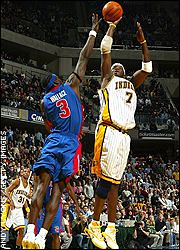
And we beat Miami in the Eastern Conference Championship, holding back their star players Shaquille O'Neal
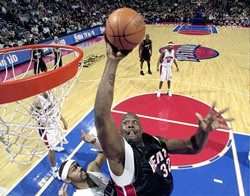
and Dwyane Wade in a fierce 7-game series after going down 3-2.
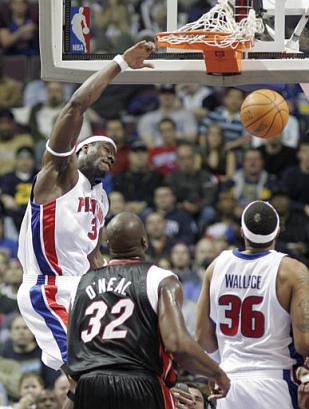
The finals versus San Antonio was long and hard.
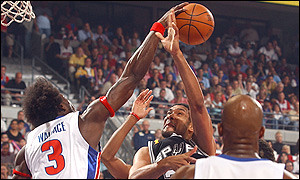
Games 1 and 2 were blowouts in San Antonio, with the Spurs winning 84-69 and 97-76.
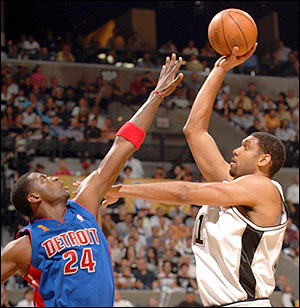
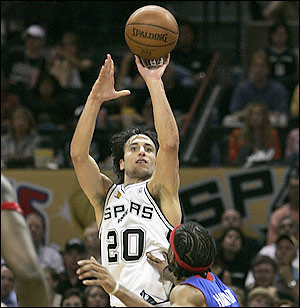
Games 3 and 4 in Detroit were decided by even higher margins, 96-79 and 102-71 for the Pistons.
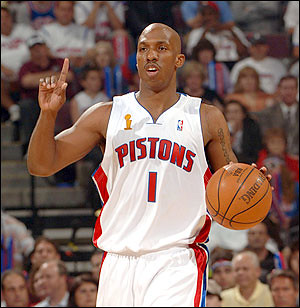
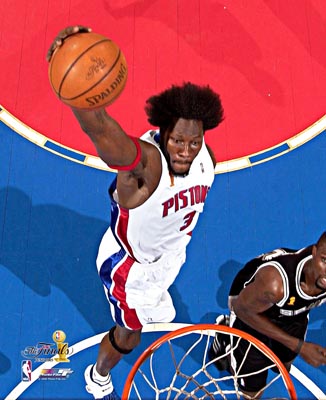
Game 5 in Detroit was a 1-point loss in overtime, when the team left Robert Horry undefended to allow a 3-pointer. Final score: 96-95.
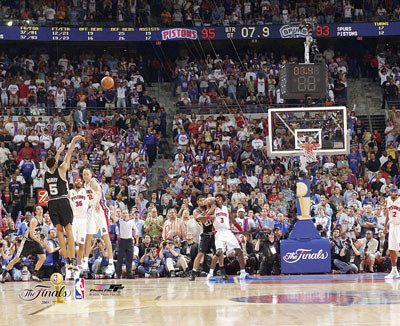
We came back in game 6 to win 95-86 and postponed San Antonio's parade plans.
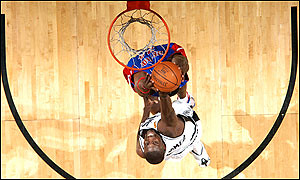
But the Spurs played best in game 7, winning 81-74.
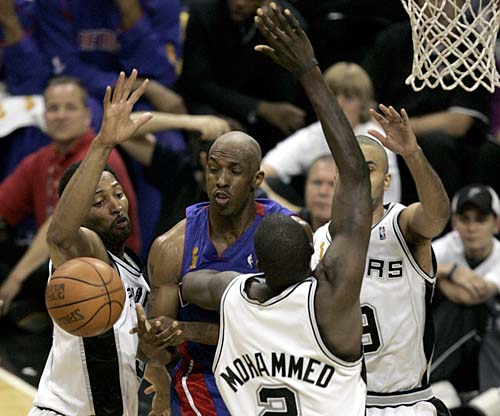
Once we were so fine, you and I
And why you gotta make it so hard on me
Yeah it's hard on me
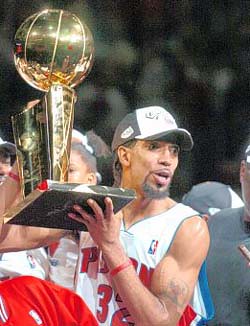
And I'm sorry but it's not a mistake
And I'm running but you're getting away

Well this is it now
Everybody get down

This is all I can take
This is how a heart breaks
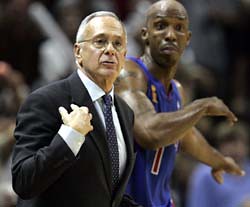
You take a hit now
You feel it break down
Make you stay while I wait
This is how a heart breaks
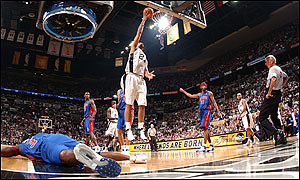
No trophy. Our heads are hanging, not from shame, for there was no shame in this loss. Our heads hang with a broken heart.

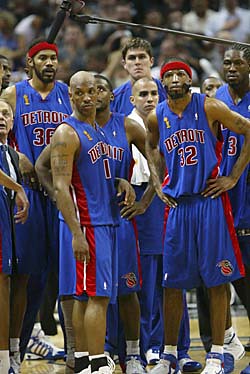
In the first round of the playoffs, we beat the Philadephia Flyers 4-1.

We went on to beat Indiana, going down 2-1 before rallying and winning 4-2.

And we beat Miami in the Eastern Conference Championship, holding back their star players Shaquille O'Neal

and Dwyane Wade in a fierce 7-game series after going down 3-2.

The finals versus San Antonio was long and hard.

Games 1 and 2 were blowouts in San Antonio, with the Spurs winning 84-69 and 97-76.


Games 3 and 4 in Detroit were decided by even higher margins, 96-79 and 102-71 for the Pistons.


Game 5 in Detroit was a 1-point loss in overtime, when the team left Robert Horry undefended to allow a 3-pointer. Final score: 96-95.

We came back in game 6 to win 95-86 and postponed San Antonio's parade plans.

But the Spurs played best in game 7, winning 81-74.

Once we were so fine, you and I
And why you gotta make it so hard on me
Yeah it's hard on me

And I'm sorry but it's not a mistake
And I'm running but you're getting away

Well this is it now
Everybody get down

This is all I can take
This is how a heart breaks

You take a hit now
You feel it break down
Make you stay while I wait
This is how a heart breaks

No trophy. Our heads are hanging, not from shame, for there was no shame in this loss. Our heads hang with a broken heart.






